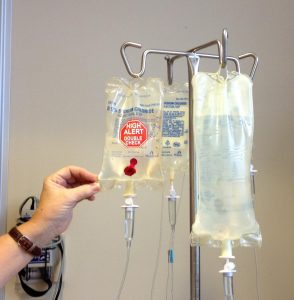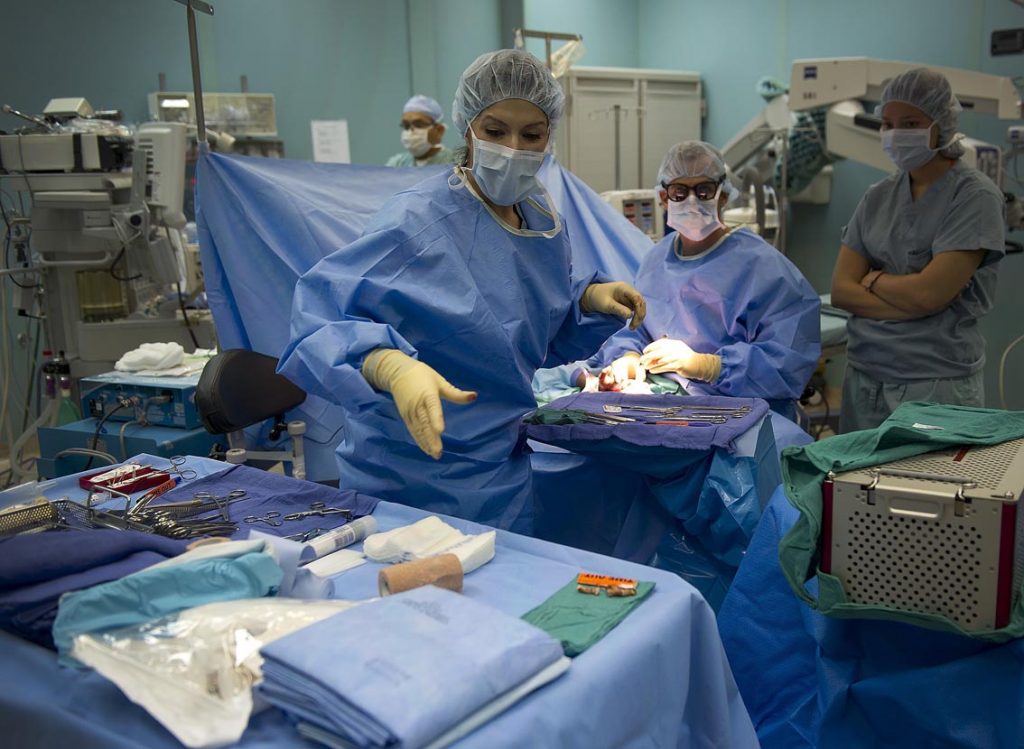We’ve crested the first wave, so we’re done, right? Not exactly, in fact not at all, save for some minor lockdown tweaks. The headline-grabbing £14bn of emergency “whatever it takes” public sector funding is still desperately needed, and it’ll be a while before the post-pandemic planners consider it safe to return the hastily converted Nightingale sites to their rightful owners.
The patients whose urgent diagnosis and treatment came to a juddering halt last month, the pent-up demand (judging by the 50 per cent drop in A&E visits recorded in April) from people who have been too scared to access services, and the backlog of bread-and-butter non-urgent elective surgery (more than two million operations) all bear out the predictions of a second or even third wave ready and waiting to pound the NHS’ battered defences. Research by NHS data provider Edge Health has even suggested indirect deaths could eclipse the carnage eventually wrought by the virus.
To assess how well it’s going to cope, let’s consider the NHS’ existing strategy and its impact on five healthcare groups, before going on to look at its plans to restore service provision to pre-pandemic levels…
Cancer: Screening services for cancer have been paused across the UK during the pandemic, despite NHS England claiming last month that its national programme is continuing. Breast, bowel and cervical screening can detect the disease before any symptoms show, in the early stages when treatment is more effective. But around 200,000 people per week are no longer receiving that screening, according to Cancer Research, so there will be a significant number of early cancers left undetected – as many as 2,000 a week, many of which may become inoperable – before these services can be reintroduced. National charity Bowel Cancer UK suggests that people aged 60-74 with undiagnosed bowel cancer may suffer worse outcomes as a result of later diagnosis.
Fewer people are also going to see their GP with cancer symptoms, which has resulted in an average drop of 25 per cent in urgent referrals in England – one hospital even reported a 90 per cent fall – while in Scotland weekly numbers are down from an average of 2,700 to just 744, although overall this is partly because some GPs are reluctant to risk sending patients to hospital for fear of Covid-19 infection. So, for every week that this goes on, more than 2,300 cancer cases are likely to be going undiagnosed across the UK. Referrals overall have fallen by 62 per cent
 And fears over Covid-19 infection have led to reductions in diagnostic testing too, especially for lung cancer, the most common cause of cancer-related deaths. Clinical trials have also been paused or discontinued and others have simply stopped recruiting, again because of the pandemic, says Cancer Research. Chemotherapy appointments – said to be down by 30 per cent – and palliative care have also been hit because the infection risks have been too high, and some patients have been denied major surgery because of a lack of ICU and recovery beds.
And fears over Covid-19 infection have led to reductions in diagnostic testing too, especially for lung cancer, the most common cause of cancer-related deaths. Clinical trials have also been paused or discontinued and others have simply stopped recruiting, again because of the pandemic, says Cancer Research. Chemotherapy appointments – said to be down by 30 per cent – and palliative care have also been hit because the infection risks have been too high, and some patients have been denied major surgery because of a lack of ICU and recovery beds.
A joint study by University College London and Health Data Research UK, released at the end of April, forecast that there will be 18,000 more cancer deaths over the next 12 months, an increase of 20 per cent, because of the impact of the pandemic.
Strokes: Pressure on NHS beds may be subsiding now we’ve ‘passed the peak’, but as recently as 16 April NHS England updated its guidance to suggest freeing up beds in specialist units currently occupied by stroke patients, to make way for those suffering from Covid-19, was “paramount”. District general hospitals, which no longer regularly treat the most seriously ill stroke patients and may not have ready access to blood-clot-dissolving thrombolysis equipment, were suggested as an alternative home for the displaced patients. At the time of writing The Lockdown is unaware of any further guidance having been issued.
Mental health: GPs have warned of difficulties diagnosing and managing patients’ mental health during the pandemic – including those developing specifically virus-related issues – because of the necessity for ‘digital’ (ie remote) appointments. A spokesperson for the Royal College of General Practitioners claimed that remote consultations were likely to make some patients feel less comfortable approaching their GP, and that many of them will want to revert to face-to-face contact as soon as possible. Meanwhile, the Royal College of Psychiatrists (RCP) says that some medical directors are reporting an “upsurge in really acute mental illness” following nearly two months of remote consultations, with one suggesting more psychiatric intensive care beds were now needed. The NHS’ existing mental health ‘estate’ was already under stress before the pandemic broke, with a lack of beds and inappropriate dormitory wards – the latter a major barrier to Covid-19 infection control – so local trusts may now be forced to limit admissions at some stage. The RCP chair Dr Agnes Ayton warned earlier this month that some specialist eating disorder units across the UK have had to run below full capacity precisely because of those limitations, at the same time as specialist charity Beat is claiming calls to its helpline have risen by 35 per cent since the pandemic began.
Child health: Lower take-up levels during the pandemic no doubt prompted the Royal College of General Practitioners last month to urge parents to continue participating in routine vaccination programmes for their children. Meanwhile, the Royal College of Paedriatrics & Child Health (RCPCH) reported a dramatic fall – 50 per cent – in the number of safeguarding referrals and referrals to children’s sexual assault services, and has expressed concern over increased waiting lists at community paediatric departments across the UK. It also claimed that waiting lists for assessment of ADHD and autism were already in excess of 12 months in some areas. Post-lockdown referral rates to child and adolescent mental health services – normally subject to waiting lists of several months for a first appointment – are said to have plummeted, with the support services that redirected referrals on to them now shut, and young service users at risk of overdose reluctant to present at A&E departments.
Dental care: It’s unclear yet exactly how the government is planning to ease the restricted access to dental services. At the end of March dental practices were told to suspend all routine treatment, but the replacement service – 165 urgent dental care ‘hubs’, supported by remote phone appointments and backed up with hospital-based emergency treatment – has not been a complete success, with GPs last month experiencing a rise in calls from patients who, when referred on to the hubs, often had difficulty getting appointments. Then, at the beginning of May came reports that the four hubs in Hertfordshire, catering for more than a million residents, had shut after the NHS refused additional funding to pay for their operation. Dental charity Alpha Omega claimed recently that, if the government opts for a phased approach to easing the suspension of routine treatment, “there will be no dental practice that can survive financially on that kind of work”.
So what does the future hold? Following up on an announcement by health and social care secretary Matt Hancock two days earlier about plans to restore non-Covid-19 services, on 29 April the NHS’ chief executive Sir Simon Stevens and CEO Amanda Pritchard outlined the ‘second phase’ of the health service’s response to Covid-19, clearly aiming to address many of the issues highlighted above. They urged primary care providers to restore cancer services and cardiovascular care, and to ‘step up’ non-Covid-19 urgent services to pre-pandemic capacity levels as soon as possible over the following six weeks, and pressed them to assess whether some non-urgent elective surgery can resume.
Quite how easy all this will be to achieve is unclear, and un-costed. It has been estimated that just clearing the backlog of non-urgent surgery could alone end up costing the NHS £3bn, raising the politically sensitive prospect of healthcare being rationed until the waiting lists are slashed.
On the same day as the statement from Stevens and Pritchard, the Royal College of Emergency Medicine (RCEM) warned that major changes to the way A&E departments operated were urgently needed to reflect the need for increased infection control and strictly enforced social distancing – possibly through the creation of separate Covid and non-Covid A&E zones for the duration of the pandemic. RCEM president Katherine Henderson told healthcare journal HSJ, “The idea that we can have a patient in a corridor now we have an endemic, contagious, un-vaccinate-able, untreatable infection that affects the older population, who are precisely the people who ended up in the corridors, is so impossible that we need to get a move on to make sure it doesn’t happen.”
University Hospitals Birmingham NHS Foundation Trust has already made a move in this direction, ring-fencing its Solihull site for non-Covid elective inpatient care, reflecting a growing enthusiasm among some NHS trust leaders to restart routine elective surgery gradually, area by area and depending on local infection rates, as mooted by Hancock on 27 April.
Back to ‘business as usual’ then? Hardly. Nobody knows how the NHS’ post-first wave strategy will play out over the coming months, but without safe and effective treatments and vaccines – and more consistent political messaging – it looks like we’ll be dependent on the truly heroic efforts of frontline NHS staff for a long time yet.
Dear Reader,
If you like our content please support our campaigning journalism to protect health care for all.
Our goal is to inform people, hold our politicians to account and help to build change through evidence based ideas.
Everyone should have access to comprehensive healthcare, but our NHS needs support. You can help us to continue to counter bad policy, battle neglect of the NHS and correct dangerous mis-infomation.
Supporters of the NHS are crucial in sustaining our health service and with your help we will be able to engage more people in securing its future.
Please donate to help support our campaigning NHS research and journalism.


